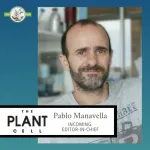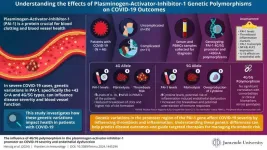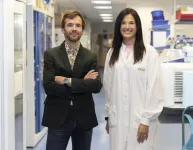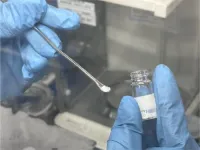Turning plants into workout supplement bio-factories
2024-10-02
(Press-News.org) It’s important to eat your veggies, but some essential vitamins and nutrients can only be found in animals, including certain amino acids and peptides. But, in a proof-of-concept study published in ACS’ Journal of Agricultural and Food Chemistry, researchers developed a method to produce creatine, carnosine and taurine — all animal-based nutrients and common workout supplements — right inside a plant. The system allows for different synthetic modules to be easily stacked together to boost production.
Plants can be surprisingly receptive when asked to produce compounds they’re not used to making. Using a specialized bacterium, scientists have transferred DNA instructions for all manner of amino acids, peptides, proteins or other molecules into different plants’ cells. This technology helped create lettuce with peptide components that reduced bone loss, for example. But when it comes to more complex compounds, the transferred DNA instructions could alter the host’s natural metabolism enough to eventually reduce the output of the desired product. Pengxiang Fan and colleagues wanted to address this issue by introducing instructions in the form of synthetic modules that not only encoded their intended product, but also the molecules used to build it. They hoped to increase the yield of three desired nutrients: creatine, carnosine and taurine.
The team put the swappable synthetic modules to the test in Nicotiana benthamiana, a tobacco-like plant used as a model organism in synthetic biology applications:
The creatine module containing the two genes for creatine synthesis resulted in 2.3 micrograms of the peptide per gram of plant material.
The carnosine peptide was produced using a module for carnosine and another module for one of the two amino acids used to build the peptide, β-alanine. Though β-alanine is naturally found in N. benthamiana, it’s in small amounts, so stacking the modules together increased carnosine production by 3.8-fold.
Surprisingly, for taurine, a double-module approach was unsuccessful for creating the amino acid. Instead, a larger disruption to the metabolism occurred, and little taurine was produced as the plant tried to get things back on track.
Overall, this work demonstrates an effective framework for producing some of the complex nutrients typically found in animals in a living plant system. The researchers say that future work could apply this method to edible plants — including fruits or vegetables, rather than just leaves — or other plants that could act as bio-factories to sustainably produce these nutrients.
The authors acknowledge funding from the National Natural Science Foundation of Zhejiang Province and the Starry Night Science Fund of Zhejiang University Shanghai Institute for Advanced Study.
The paper’s abstract will be available on Oct. 2 at 8 a.m. Eastern time here: http://pubs.acs.org/doi/abs/10.1021/acs.jafc.4c05719
###
The American Chemical Society (ACS) is a nonprofit organization chartered by the U.S. Congress. ACS’ mission is to advance the broader chemistry enterprise and its practitioners for the benefit of Earth and all its people. The Society is a global leader in promoting excellence in science education and providing access to chemistry-related information and research through its multiple research solutions, peer-reviewed journals, scientific conferences, e-books and weekly news periodical Chemical & Engineering News. ACS journals are among the most cited, most trusted and most read within the scientific literature; however, ACS itself does not conduct chemical research. As a leader in scientific information solutions, its CAS division partners with global innovators to accelerate breakthroughs by curating, connecting and analyzing the world’s scientific knowledge. ACS’ main offices are in Washington, D.C., and Columbus, Ohio.
Registered journalists can subscribe to the ACS journalist news portal on EurekAlert! to access embargoed and public science press releases. For media inquiries, contact newsroom@acs.org.
Note: ACS does not conduct research but publishes and publicizes peer-reviewed scientific studies.
Follow us: X, formerly Twitter | Facebook | LinkedIn | Instagram
END
ELSE PRESS RELEASES FROM THIS DATE:
2024-10-02
The American Society of Plant Biologists (ASPB) is excited to announce Pablo Manavella will serve as the next Editor-in-Chief of The Plant Cell. The Plant Cell is a leading international society journal that publishes novel research of special significance in plant biology, especially in the areas of cellular biology, molecular biology, biochemistry, genetics, development, and evolution.
Manavella is currently a Consejo Superior de Investigaciones Científicas (CSIC) researcher at the Institute for Mediterranean and Subtropical Horticulture (IHSM) in Málaga, Spain. He is the Principal Investigator in a lab focusing on the intricate mechanisms regulating ...
2024-10-02
Despite global vaccination efforts, COVID-19 continues to pose significant risks, leading to severe complications and fatalities. These risks are driven by disrupted coagulation, impaired fibrinolysis, which is the process of breaking blood clots, and heightened inflammatory responses. The fibrinolytic system, crucial for maintaining balance within the coagulation cascade, relies on plasmin-mediated fibrin degradation. Plasminogen activators convert plasminogen into plasmin, an enzyme that breaks down ...
2024-10-02
SAN FRANCISCO —PLOS today announced that it has received a $1.5 million grant from the Robert Wood Johnson Foundation and a $1 million grant from the Gordon and Betty Moore Foundation to support our mission to drive Open Science forward with meaningful change in scholarly publishing. The funds enable PLOS to embark on an ambitious 18-month research and design project to explore how to tackle two barriers that exclude many researchers from meaningfully participating in Open Science: affordability ...
2024-10-02
Researchers at the RIKEN Cluster for Pioneering Research (CPR) have developed technology that can alter, within the body, the recognized identity of proteins. The innovation, published in Nature Communications on October 2, allowed researchers to target mouse tumors with a protein and then transport that protein out of the body. This means that cancer-killing drugs could be sent directly to tumors and then excreted from the body after dropping off their payload. The technology also has the potential to allow multi-purpose drugs that can travel from organ to organ, performing ...
2024-10-02
Smoke From Megafires Puts Orchard Trees at Risk
Effects Last Months, Reducing Nut Crop Yields
By Amy Quinton | October 2, 2023
Long-term smoke exposure from massive wildfires lowers the energy reserves of orchard trees and can cut their nut production by half, researchers at the University of California, Davis, found. The smoke can affect trees for months after a megafire, depressing their bloom and the next season’s harvest. This finding reveals a new danger from wildfires that could affect plant health in both agricultural and natural environments.
Nature Plants published ...
2024-10-02
Health Data Research UK (HDR UK) and the National Research Foundation Singapore (NRF) are pleased to have signed a Memorandum of Understanding (MoU) today, that formalises a collaborative partnership in healthcare and data science. The partnership will leverage cutting-edge data science and research, with a focus on trustworthy data use to power improvements in healthcare, research and innovation, strengthening existing links between the UK and Singapore.
The MoU was signed by Permanent Secretary for National Research and ...
2024-10-02
CNIO researchers have discovered that cancer perverts certain brain cells, the astrocytes, and causes them to produce a protein that works in favour of the tumour.
A drug, silibinin, inhibits this protein, and could be used to help treat brain metastasis with immunotherapy. A clinical trial is underway.
The work is published in the American Association for Cancer Research's journal Cancer Discovery.
Researchers at the Spanish National Cancer Research Centre (CNIO) propose a new treatment for brain metastases that respond poorly, or not at all, to immunotherapy, and provide a biomarker to predict ...
2024-10-02
Often overlooked, rechargeable batteries play an important part in contemporary life, powering small devices like smartphones to larger ones like electric vehicles. The keys to creating sustainable rechargeable batteries include having them hold their charge longer, giving them a longer life with more charging cycles, and making them safer. Which is why there is so much promise in all-solid-state batteries.
The problem so far is discovering which solid electrolytes offer such potential advantages.
In a step toward that goal, an Osaka Metropolitan University research group led by Assistant Professor Kota Motohashi, Associate Professor Atsushi Sakuda, ...
2024-10-02
Phones can be useful tools in classrooms to remind students of deadlines or encourage more exchange between students and teachers. At the same time, they can be distracting: Students report using their phones for non-academic purposes as often as 10 times a day. Thus, in many classrooms, phones are not allowed.
Now, researchers in the US have investigated if letting students use their phones for very brief amounts of time – dubbed phone or technology breaks – can enhance classroom performance and reduce phone use.
“We show that technology breaks may be helpful for reducing cell phone use in the college classroom,” said Prof Ryan Redner, a ...
2024-10-02
CLEVELAND, Ohio (Oct 2, 2024)—Timely identification and treatment of bothersome hot flashes have the potential to improve the lives of many women and save employers countless days of related absenteeism and lost work productivity. Yet, a new study finds that such symptoms are often not documented in electronic health records (EHRs) or not adequately addressed during primary care visits. The study is published online today in Menopause, the journal of The Menopause Society.
Approximately 75% of women experience hot flashes as they go through the menopause transition. Despite the common occurrence of these bothersome ...
LAST 30 PRESS RELEASES:
[Press-News.org] Turning plants into workout supplement bio-factories



